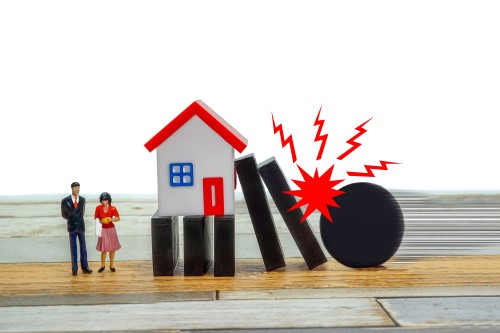If interest rates have risen over the past year, which means that if you have an adjustable-rate mortgage, your payments are probably taking a bit more money out of your pocket. A slight increase in mortgage payments is no problem for most people, but it may spell trouble if you need to make other large or unexpected payments. You also may be concerned if rising interest rates are combined with falling house prices in your area, which can make it difficult to sell your home. Read on to find out more about mortgages and what to do if you think you may fall behind on your mortgage payments. If you anticipate any problems making your mortgage payments, you should contact your lender and your lawyer as soon as possible.
Is there anything I can do if I can’t pay my mortgage?
When people get behind on their mortgage payments, it’s usually because of job loss, divorce, illness, or medical bills. The first thing to do if you’re having trouble making your mortgage payments is to take the matter seriously. Many people refuse to face the fact that their home is on the line and delay doing anything until it’s too late. Then you should take the following steps:
- Contact your lender as soon as possible. Call or write to explain your problem, and be sure to include your account number to speed the process.
- Ask if you could defer paying principal for a few months.
- Ask if you could refinance the loan at a lower rate to help make your payments affordable.
- If that won’t work, ask for time to sell the home yourself. If you’re actively trying to sell your home, your lender may cooperate by reducing monthly payments.
- Contact the nearest housing counseling agency, which offers advice and services to help you ward off foreclosure. If your loan is insured by HUD, for example, a HUD-approved agency can help you apply for federal mortgage-relief programs that may provide temporary aid. If you have a VA-insured loan, contact a local VA office for assistance.
- Consider filing for bankruptcy, which in some states may ward off immediate foreclosure. But be sure to talk with a lawyer before beginning any bankruptcy proceedings.
What is foreclosure?
Foreclosure is a legal action in which a lender takes ownership of the property used to secure a loan because the property owner failed to make mortgage payments. Foreclosure terminates the homeowner’s ownership interest. A foreclosure decree orders the sale of mortgaged real estate so the proceeds can satisfy the debt.
What happens when a lender forecloses on the mortgage?
The law varies by state, and these differences have a critical impact on the homeowner’s rights. That’s why it’s important to consult a lawyer in your state as soon as you can. In general, if the lender forecloses, all your rights to your home will end immediately or soon thereafter. The foreclosure process may take no more than six months, though some states have a more lengthy process and include rights of redemption.
State laws do provide homeowners with certain protections. In Illinois, for example, when a foreclosure suit is filed, the homeowner has ninety days to make up the back payments to reinstate the mortgage. After that date, the lender can legally require that the mortgage be paid in full within seven months of the original foreclosure notice. The important thing to remember is that you must act immediately to protect your home if your lender intends to foreclose.



コメント